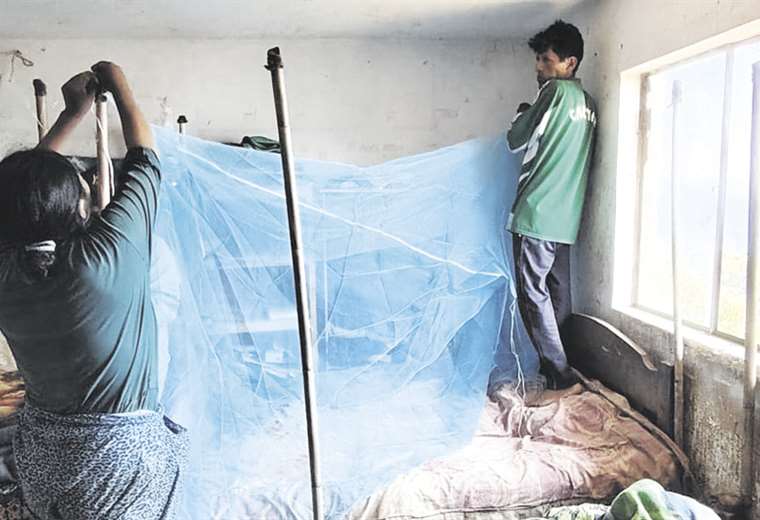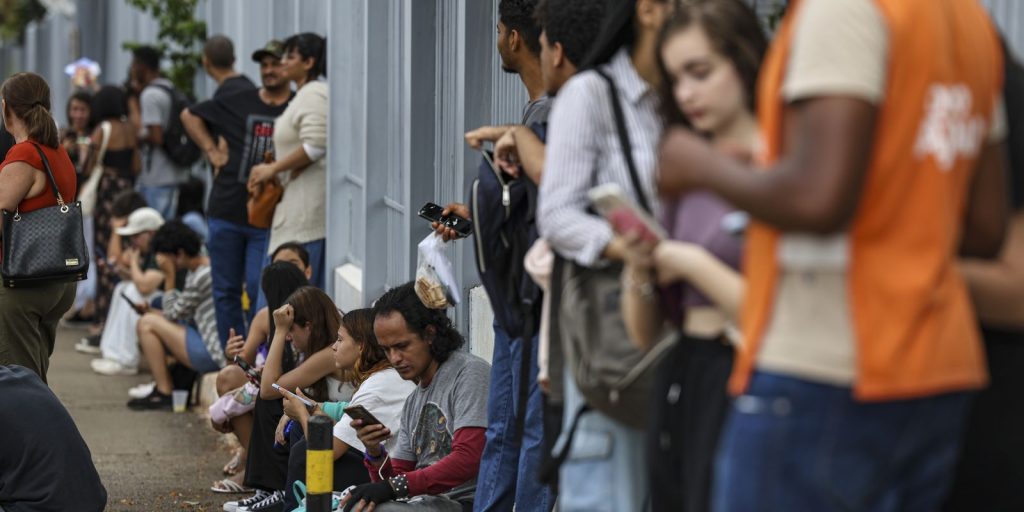November 10, 2024, 4:00 AM
November 10, 2024, 4:00 AM
This week, health personnel and students from Cochabamba joined a campaign called Mobilized against Denguepromoted at the initiative of the Headquarters and the Mayor’s Office.
The crusade included information activities and a march with the aim of raising awareness among the population about the importance of implementing actions against the transmitting mosquito Aedes aegypti.
Given the rains that favor the proliferation of the mosquito, campaigns were activated in different regions to prevent dengue and other diseases transmitted by this vector, such as Zika and chikungunya.
According to the Ministry of Health, 27 municipalities in the country, including Cochabamba and Santa Cruz de la Sierra, have a high risk of dengue, because entomological surveys detected a high rate of presence of mosquito larvae in homes.
The Ministry of Health and Sports reported that the fight against mosquitoes has been intensified in these 27 municipalities with high and medium risk. The actions are carried out in coordination with the municipal and departmental governments, where everything from training in the clinical management of patients to the delivery of essential supplies for mosquito control is carried out.
According to the data, in the department of Tarija the municipalities that are at high risk are Cercado, Bermejo and Yacuiba; while in the Santa Cruz region there are Warnes, La Guardia and Santa Cruz de la Sierra. The capital is located in Cochabamba, as well as Villa Tunari, Aiquile and Ivirgarzama; in La Paz there are Caranavi, La Asunta, Palos Blancos and Chulumani; and in Beni, Trinidad, Riberalta, San Borja and Guayaramerín. In Pando there is Cobija and in Chuquisaca, Sucre and Monteagudo.
Among the municipalities with medium risk are Montero, El Torno and Cotoca (Santa Cruz); Irupana (La Paz); The Sena (Pando); and Torotoro (Potosí), reported the Ministry of Health.
In Cochabamba, the beginning of the campaign against dengue included a march that toured the streets of the city center, followed by an information fair in the Colón square.
The Headquarters called on the population to support, eliminating breeding sites from their homes, since in the month of October alone that municipality registered 112 suspected cases and one positive.
The municipality of Tarija has already carried out a campaign to eliminate mosquito breeding sites in 13 districts, with the help of military regiments, as well as the participation of neighborhood councils.
“All these actions are aimed at promoting the elimination of mosquito breeding sites and a change in behavior in our population,” said the head of the Disease Prevention and Control Unit of the Ministry of Health and Sports, Roxana Salamanca.
In Santa Cruz, the Headquarters activated a campaign to explain to residents the importance of eliminating breeding sites. So far this year, more than 250 positive cases have been reported in the department.
In Pando they work to protect against the bites of mosquitoes that transmit dengue and malaria, given that 19 municipalities of Beni, La Paz and Pando report cases of malaria.















